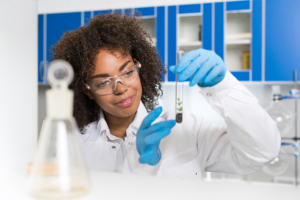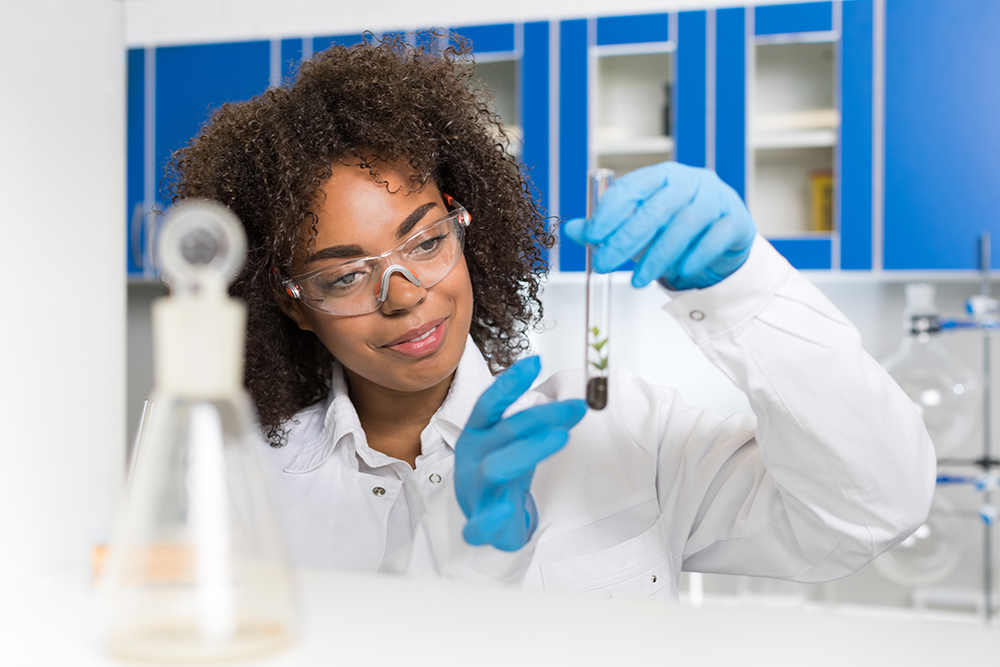Disclaimer: The information on our website is provided for general information purposes only. We make no representations or warranties of any kind, express or implied, about the completeness, accuracy, reliability, suitability or availability with respect to the website or the information contained on our website for any purpose. Any reliance on such information is therefore strictly at your own risk and we are not liable for any damages or losses arising out of or resulting from your reliance on any information contained on our website.
A soil and plant scientist (or agronomist) conducts research on a variety of agricultural items. These scientists have the skills and knowledge necessary to study how soil impacts plants or trees. This research enables them to investigate ways to increase crop yields and manage the impact of agriculture on an environment.
Watch a video to learn what a soil and plant scientist does:
How to Become a Soil and Plant Scientist

At a minimum, you would need to earn a bachelor’s degree in a degree that focuses on soil science and/or crop science. In college, you would learn the science behind soil along with breeding and growing plants as this will help you increase crop yields and create healthier food. There will be classroom instruction, laboratory work, and hands-on projects in your curriculum. Some college programs may require you to complete an internship in order to gain real-world experience prior to graduation.
Though a bachelor’s degree is a minimum requirement, O*NET OnLine reports that over 25% hold a master’s degrees while over 40% hold a doctorate degree. This is because employers want applicants that hold a master’s degree and some prefer candidates that have earned their doctorate degree. Along with the formal education, employers also look for applicants that have extensive experience of five or more years in the field. On-the-job training is given as needed, however employers expect candidates to already have the skills, training, and work related experience for the job when they are hired.
Technology skills are needed in this career field, such as database and query software, map creation software, and analytical or scientific software. There are also soft skills that employers look for as well such as critical thinking, complex problem solving, strong oral and written comprehension, and deductive and inductive reasoning.
Job Description of a Soil and Plant Scientist
Soil and plant scientists (or agronomists) work in the agriculture field to solve real-world issues involving our natural resources. Their job duties vary depending on their research speciality, though all have been trained in the study of agronomy (the science of soil management and crop production). Some may focus their research on crop plants which can also include soil research, others may focus all of their research time on soil microbes. These scientists may also focus their work on sites that have hazardous materials and research ways to rehabilitate the site to be reused safely. According to Agronomy.org (opens in a new tab), agronomists also play critical roles in issues of global concern, including food and water security, air quality and climate change, soil loss and degradation, health and nutrition, and many others.
Free Student and Teacher Resources
Agronomy4me.org was created by the American Society of Agronomy and offers education targeting student grade groups K-4, grades 5-8, and grades 9-12. They also host resources developed just for teachers. At the bottom of the 9-12 page, they also offer to send seeds freely to students or your classroom.
Soil and Plant Scientist Video Career Transcript
With a growing world population, the task of feeding everyone on the planet is getting bigger every day. Key to maintaining the nation’s food supply— agricultural and food scientists research ways to improve agricultural production and food products while keeping conditions healthy and sustainable on farms, production facilities, and in the soil.
Animal scientists research ways to improve the quality and productivity of farm animals for food production, through lowering animal death rates, increasing growth rates, and upgrading their environments. Food scientists and technologists study the basic elements of food. They analyze nutritional content, discover food sources, and develop ways to make processed foods safe and nutritious. Many create new food products, and research ideas to preserve and package food.
Soil scientists examine the composition of soil, how it affects plant or crop growth, and how different soil treatments affect crop productivity. Plant scientists develop improvements to crop yields and ways to enhance plant production, including controlling weeds and pests. Agricultural and food scientists work in colleges and universities, food production companies, and in scientific research and development. They divide their time between laboratories, offices, and—when needed— visits to farms and processing plants. Work hours are typically full time, with standard hours. Agricultural and food scientists need at least a bachelor’s degree in their field, or a related science or engineering major. Many pursue graduate degrees.
Article Citations
Bureau of Labor Statistics, U.S. Department of Labor, Occupational Outlook Handbook, Soil and Plant Scientists.
National Center for O*NET Development. 19-1013.00. O*NET OnLine.
The career video is in the public domain from the U. S. Department of Labor, Employment and Training Administration.

